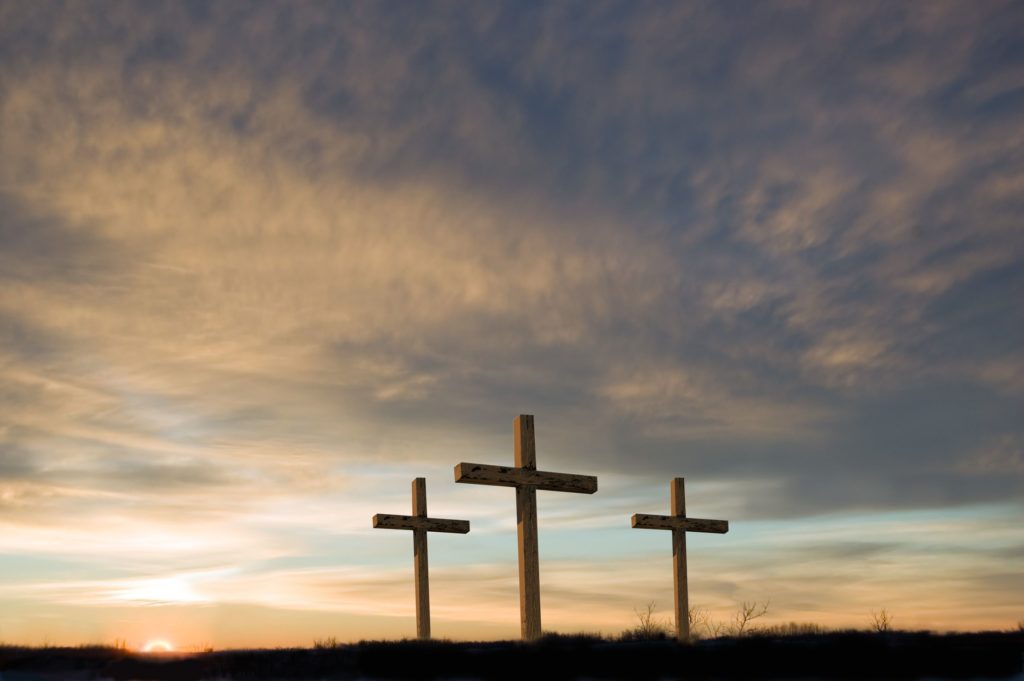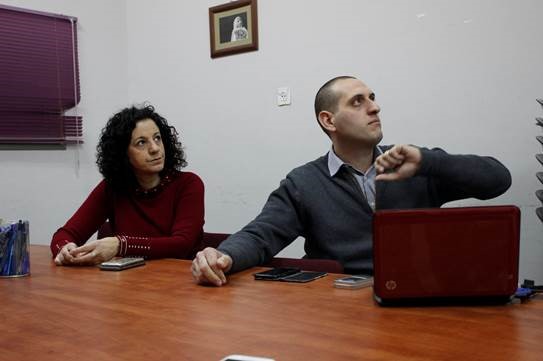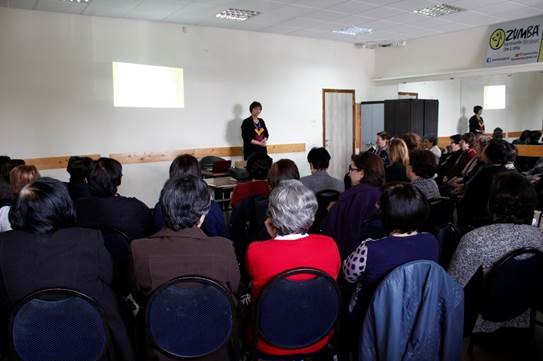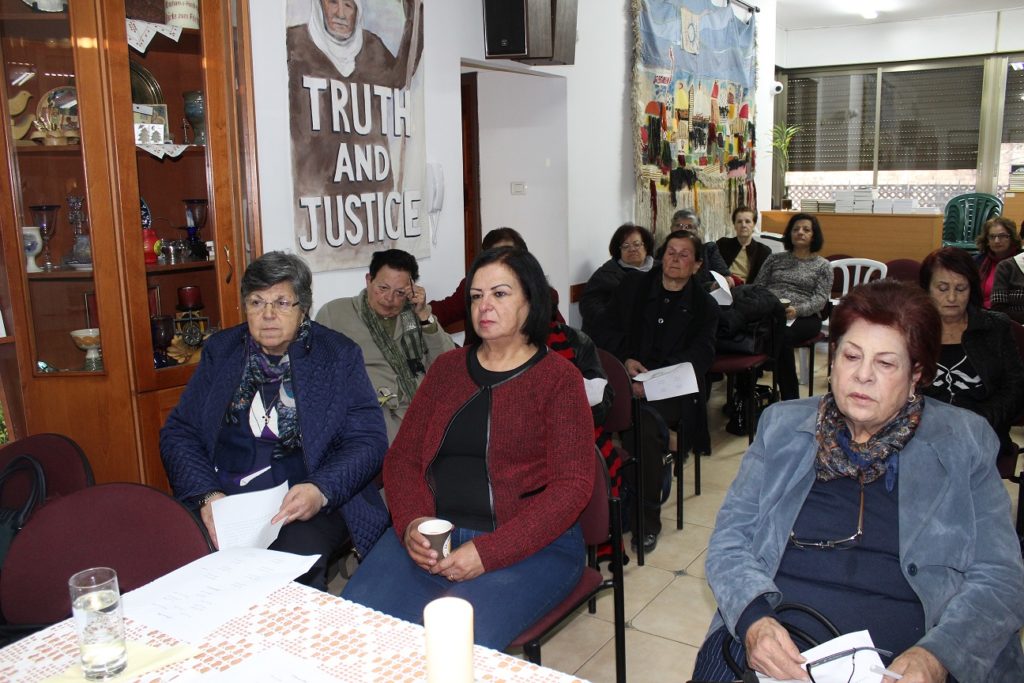
Philippians
3: 4b-14 & John 12:1-8
May the words of my mouth and the meditation of our
hearts, be acceptable in your sight O Lord our strength and our redeemer.
I am thankful to God for
the privilege I had in serving this Cathedral and especially the Palestinian
congregation in the 1980’s and 1990’s.
I am thankful to Archbishop
Suheil for his usual warm welcome and kindness whenever I come back to visit.
I am also thankful to Dean
Husam for inviting me to preach.
I also want to thank you,
friends for coming to visit Jerusalem at this time and I pray that your Lenten experience
be a blessed one. May your visit be a
pilgrimage, a time of spiritual stimulation and renewal! May it be a time for the strengthening of
your faith and the deepening of your love of God and love of neighbor!
The reading from
Philippians is rich with ideas for our Christian life and especially during the
Lenten season: Paul, the writer experienced
much suffering for his faith in Christ.
But he said, “I regard everything as loss because of the surpassing
value of knowing Christ Jesus my Lord.” For Paul, Christ is the pearl of great
price. Everything else is of a lesser
value, it is rubbish, trash. To Know Christ and to follow him is to find true
life’s meaning in his love and service. What
an amazing commitment Paul had. It puts
many of us ministers of the Gospel to shame.
One of Paul’s great
statements in the reading today is, “I want to know Christ and the power of his
resurrection and the sharing of his suffering by becoming like him in his death
that I may attain the resurrection from the dead.” In Lent we need to reflect on these words.
In the Gospel reading, we
are introduced to an episode about Jesus’ visit with his friends, Lazarus and
his two sisters Martha and Mary.
Jesus arrives with his 12
disciples to Bethany. Martha invites a
number of people and puts out a splendid dinner, in his honor. After all, he raised her brother from the
dead. Many times we show our admiration,
respect and love for friends around the dinner table. Through food, fellowship, and discussion, we
express our genuine love and friendship.
Palestinian hospitality is not new.
The early church encouraged it. The
writer of Hebrews, “Do not neglect hospitality.”
Mary on the other hand,
expressed her love through anointing Jesus’ feet, and wiping them with her hair
using a very expensive perfume. Judas
Iscariot, one of the disciples, did not like it. For him, it was a waste of money. It could have been sold for three hundred
dinars and distributed to the poor. On the one hand, if Judas’ concern was
genuine, it would have been an important concern to consider. On the other hand, Judas was not thinking of
the poor. The poor were a cover up for
his greed and love of money.
What Mary did was an act
of love. Love cannot be measured with
money. Genuine Love surpasses the
material. Jesus accepted and appreciated
Mary’s act of love. At the same time,
Jesus said, to Judas and the disciples, the poor you will always have with you,
but you do not always have me. Even
today, we do things in the church and outside the church out of genuine love
for Christ. Some people might still criticize
us as a waste of money; but it is an act of love. At the same time, we must not neglect our
responsibility for the poor and oppressed.
So how can we express our love and devotion to Christ
today?
Let us remember what Christ said, if you do it to one of the least of my
brothers and sisters you do it to me. It
is worth reflecting on the fact that God who made the heavens and the earth “does
not envision a world of scarcity.” We
humans made and created the scarcity. The
presence of the poor among us reflects our failure, as humans, to eliminate poverty. It is estimated that half of the world’s
population, more than 3 billion people are poor. (less than $2.50 a day. 1.3 billion people, live in extreme poverty,
less than $1.25 a day.) A small fraction of what the countries of the world
spend on the purchase of arms and war equipment if used in the proper way, it would
eradicate poverty. Oxfam estimates that it would take $60
billion dollars annually to end extreme global poverty. This amount is less than one fourth of the
income of the top 100 richest billionaires.
Today, hunger is the number one cause of death in the world. According to UNICEF, 22,000 children die each
day due to poverty. We are all guilty. It
is a crime against our brothers and sisters.
In the reading of “Forward Day by Day,” for today, Canon Pastor Glenice
Robinson-Como of Christ Church Cathedral in Houston, Texas wrote, “God does not
ask us to simply give to charity; God requires that we pursue justice. Charity offers temporary relief: justice
seeks solutions.” (April 7, 2019)
Dom Helder Camara was an
archbishop in Brazil. He used to say, “When
I give food to the poor, people call me a saint. When I ask why they are poor, they call me a Communist.” It is important for the church to condemn the
unjust economic structures that keep the poor, poor; and make the rich,
richer. Our world, including our land,
Palestine/Israel needs a better just and equitable economic system.
I don’t have statistics
about occupied Palestine. In the state of Israel, however, poverty is not much
spoken about, but it exists. Last year
in 2018, over 21% of the Israeli population was living in poverty. The more alarming statistics show that almost
30% of children in Israel are living in poverty, one in every 3. The poor are especially, the single mothers,
the elderly, the Jewish Orthodox communities, and Arab Palestinians Israeli
citizens. Israel is rated at the bottom
of the list of OECD (Organization for Economic Cooperation and Development)
countries in terms of poverty.
The same applies to the
political situation in our country. Friends
don’t let your visit to the holy sites blind you from seeing the injustice that
is rampant in our land. It is easy to
come and visit the holy sites and return home and miss the political and
economic injustice. The Palestinians,
Muslims and Christians, are living under the occupation of the government of
Israel. This occupation is illegal under
international law. Israel has stripped
the Palestinians of their land. Many of
the Palestinians living in the refugee camps around Bethlehem, in Jerusalem, on
the West Bank, and the Gaza Strip used to be simple small farmers. They lived of their land. The Israeli settlements are built on
Palestinian land confiscated by the Israeli government. All the settlements are illegal under
international law.
Every Friday, for the last
year, after the Muslim noon prayers, the people of Gaza have been demonstrating
non-violently calling for their Right of Return (according to international
law) to their villages and land.
Hundreds of Palestinians have been killed, especially women and children,
by Israeli snipers and army fire. The Wall
you see in your travel is illegal. Our people are imprisoned behind the Wall. Our people cry out for the end of the illegal
occupation. They cry out for
liberation. They want to see the
establishment of their own Palestinian state living in peace alongside the
state of Israel. We want Israel to live
in peace; our people, the Palestinians want to live in peace, but peace can
only be built on justice as defined by international law and United Nations Resolutions. Without justice there can be no enduring
peace.
Friends, we are grateful
for your visit. But, again, don’t let
your visit to the holy places blind you from seeing the living stones of the
land suffering from the injustice imposed by the Israeli government. Pray
for all the people of the land – Jews, Muslims and Christians. Pray for the liberation of the oppressed. Become engaged in advocacy on their
behalf. Work for justice and peace. Jesus said, when you do it to the least of
these, my brothers and sisters, you do it to me.
Jesus calls us to be
peacemakers. He said, “Blessed are the peacemakers…” It is by being peacemakers
that we all become children of God.
Friends, may God embolden
us and give us the courage to stand on the side of the poor and oppressed and
work for their liberation.
And to God alone be glory and honor, Amen.
By
Canon Naim
Ateek











